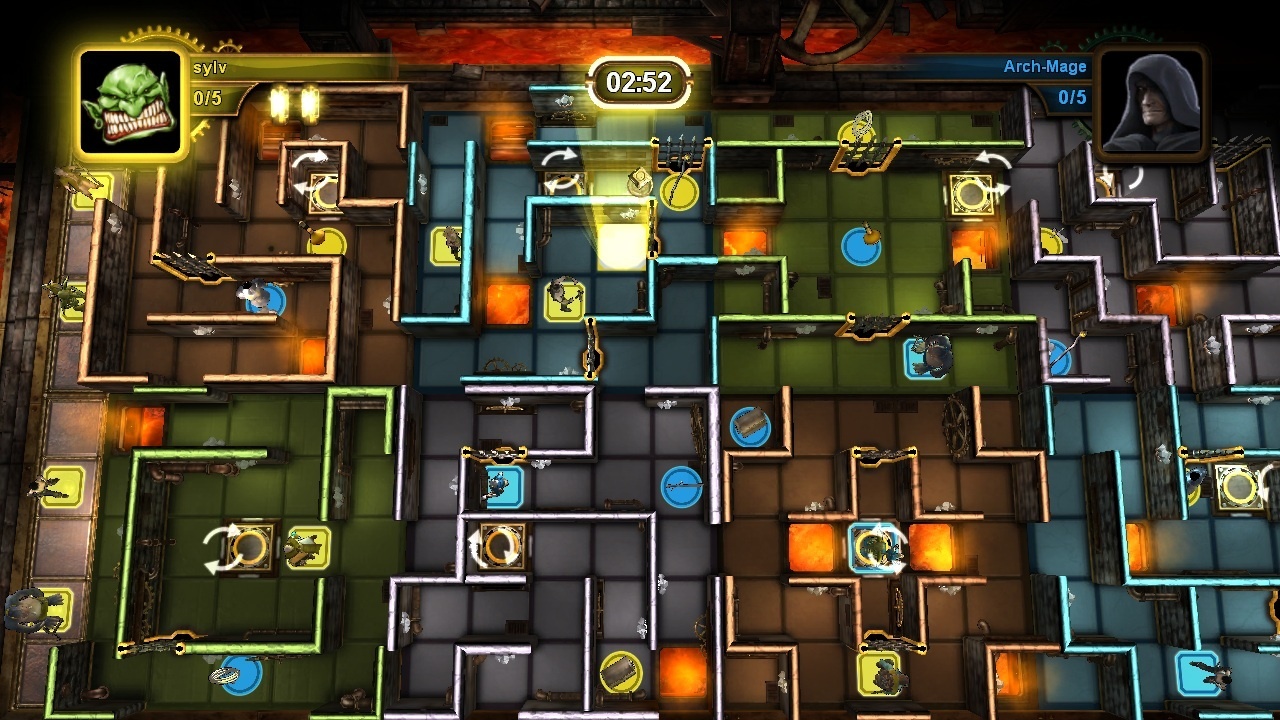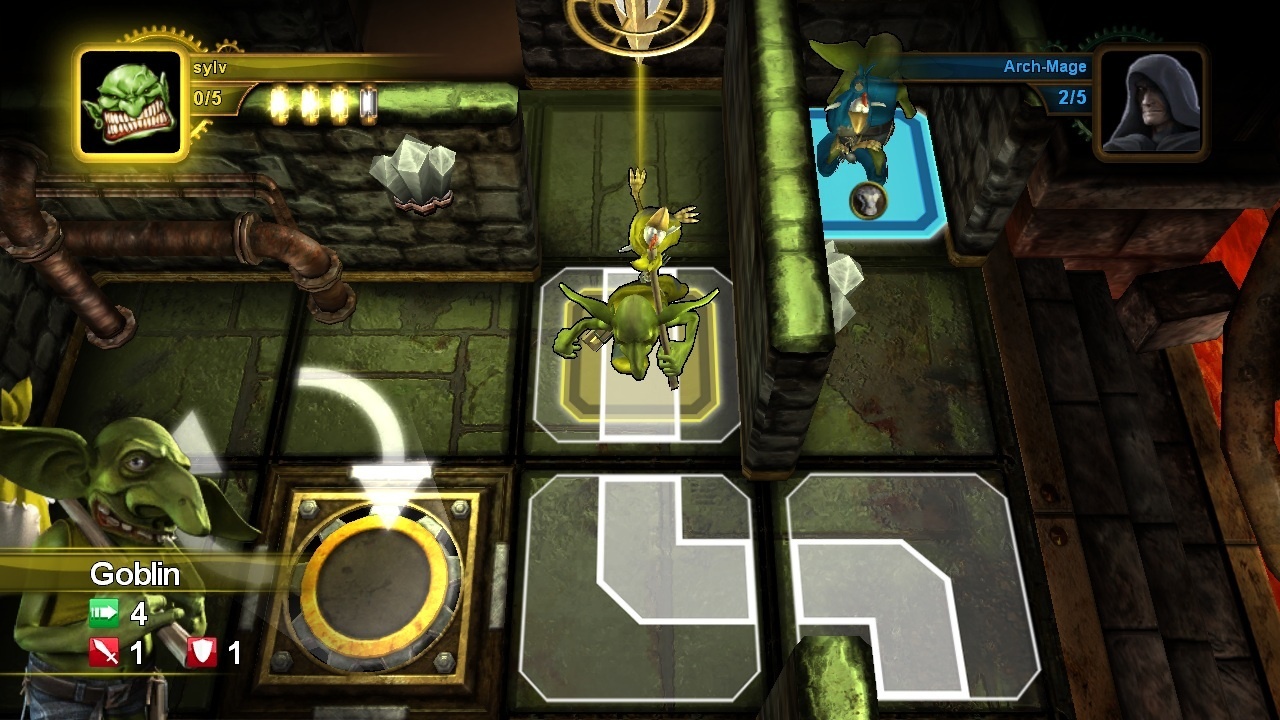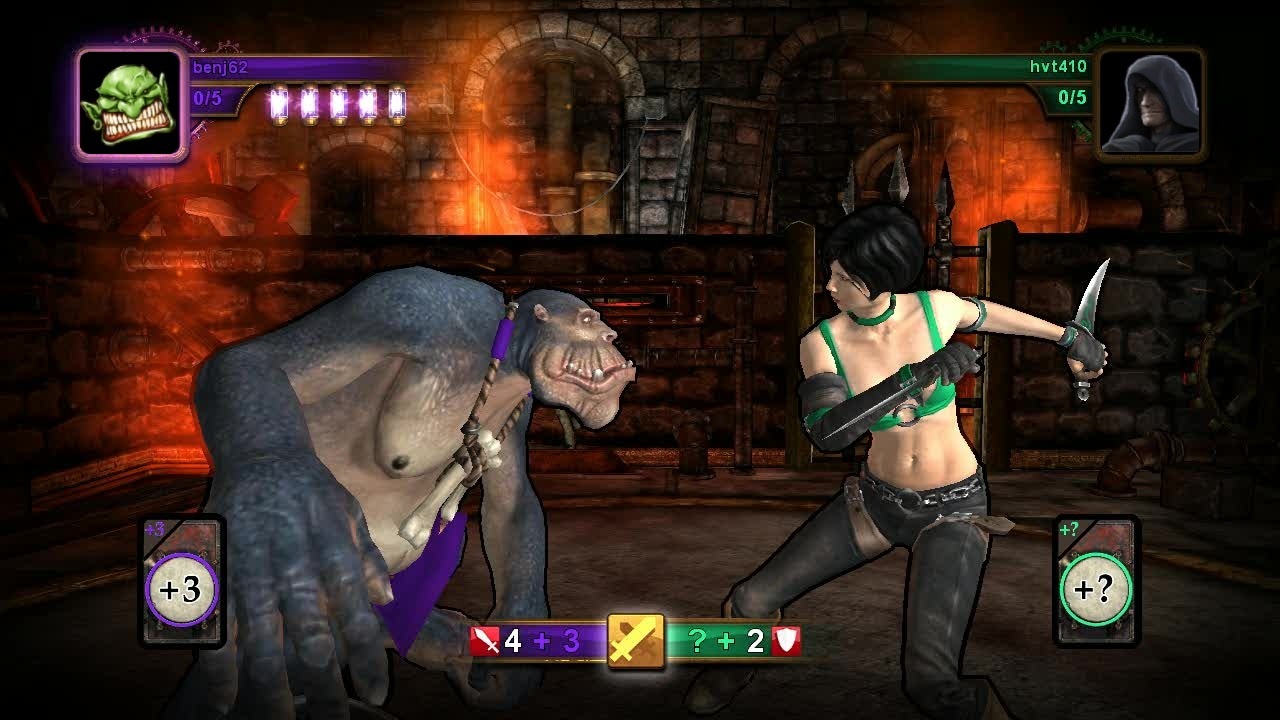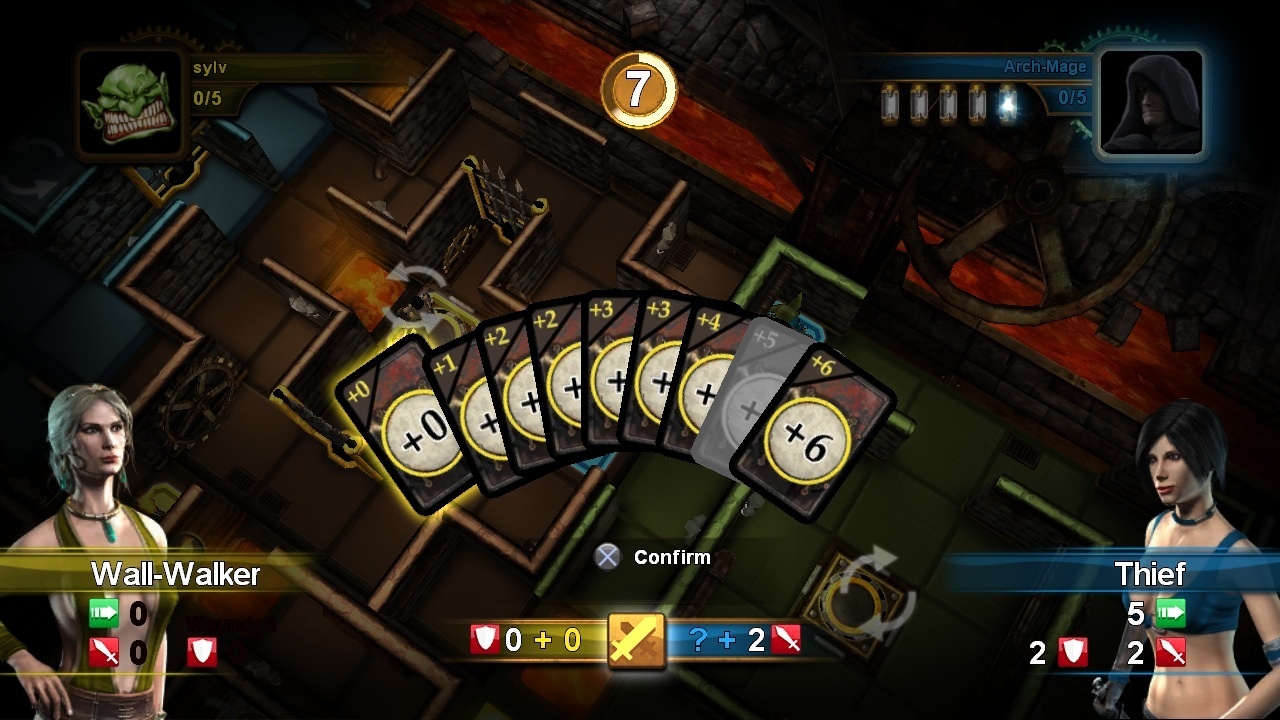The problem with board games is that you have to set them up before you start and clean 'em up when you're done. The popular board game Dungeon Master is now out on PlayStation Network, saving you the trouble of all that work. Unfortunately, this adaptation fails to take advantage of the freedom offered by the format, with bland visuals that do little to improve on the experience of looking at an actual game board. Toss in crashes and the absence of any board game's most important feature--local multiplayer--and this version will leave you longing for the comfort of actual cards in your hand and actual friends at your side.

Although the Dungeon Twister board game is available in multiple languages (including English) and has enjoyed success throughout the world since its original French release in 2004, there's a good chance that you aren't familiar with this complex dungeon-based strategy game. Fortunately, the PlayStation Network edition includes a comprehensive tutorial spread over the course of 20 introductory missions. Less fortunately, that education takes entirely too long. The game presents its various rules in a generally accessible manner that makes a bunch of different rules come together effectively. There's really no way you'll reach the end of the tutorial missions without an intimate knowledge of how everything works.
Yet some of the lessons could easily have been condensed, and a number of the missions don't teach you anything new--they just have you defeating a capable rival using skills mastered in lessons up to that point, and you have to win before you can continue learning how things work. Most new missions really do introduce an important new element and force you to use new knowledge, but your artificial nemesis is dull, and the amount of time that you must invest before the game finally concedes that you know all you need to know is demoralizing.

The Dungeon Twister board shows a collection of rooms populated with monsters and heroes and items, and each player receives cards that determine basic things like who gets to advance how many spaces in a given turn. The overall goal is to score a certain number of victory points, which are attained by guiding your characters across a dungeon, by eliminating enough of your opponent's pieces, or by working out some effective combination of the two actions.
A variety of factors make the rush for victory points an interesting endeavor, including doors that must be broken or opened by certain character classes, and treasure chests that you can carry across the goal line for a nice bonus. There are also armor and weapons that add to your stats so that you're more likely to survive against a powerful foe in direct combat; plus, you can find potions to extend your turn and rope that can form makeshift bridges over floor traps that would normally slow certain warriors.
Perhaps the game's standout feature, once you're comfortable with the finer points, is your ability to shift the orientation of rooms. Since individual rooms are actually miniature mazes, careful rotation can turn a straightforward charge into a strategic minefield. Suddenly, a piece of devastating equipment that was happily beyond the reach of your enemy is a mere two or three steps away from him, or a guarded path that blocks you from reaching the far side of the dungeon turns into a welcome mat as you twist away all resistance and make a mad dash to safety.

Unfortunately, thanks to a few rough edges and some technical issues, Dungeon Twister is good at making you forget the things it does well. The technical issues range from slightly irritating to thoroughly exasperating. Even in some of the simpler tutorial missions, you may fall victim to a game freeze or two, which is always bad but is even more frustrating here because freezes tend to occur near the end of a match. A good match might last as long as an hour (or more, if you tweak the settings), so defeat by game crash can be hard to take. That's especially true if you spare a moment to think back to how much of that wasted period you spent waiting for your opponent to settle on which move he wanted to make, and then watching as those moves played out on the board.
A pleasant visual presentation might have alleviated any number of minor issues, but the game is entirely bland. The camera is positioned far enough away from the action that you can see most of the dungeon, which is handy, but you still have to scroll left or right on the larger maps, and the characters are difficult to distinguish from one another unless you zoom in closer. In battle, warriors swing clubs and swords and books at each other, but none of their interactions are convincing. Between brawls, you have only grunts or growls and ambient noise (like dripping water or howling gusts of air) to keep you engaged. The only time the game exhibits personality is when a warrior does a little jig upon reaching safety on the opposite side of the board, but even that seems halfhearted.

One design decision is disappointing no matter how you look at it: the lack of local multiplayer. At least as much as something like Monopoly or chess, the core concept here derives most of its value from face-to-face competition, yet the PlayStation Network adaptation only lets you face off against a computer opponent or an online rival. There are matchmaking and invite options, but those pale in comparison to the affordable thrill that local multiplayer might have so easily provided. You should still get some enjoyment out of the game, in spite of that particular stumble, but the path that leads to boredom has been shortened, and that's the wrong sort of twist for any dungeon.